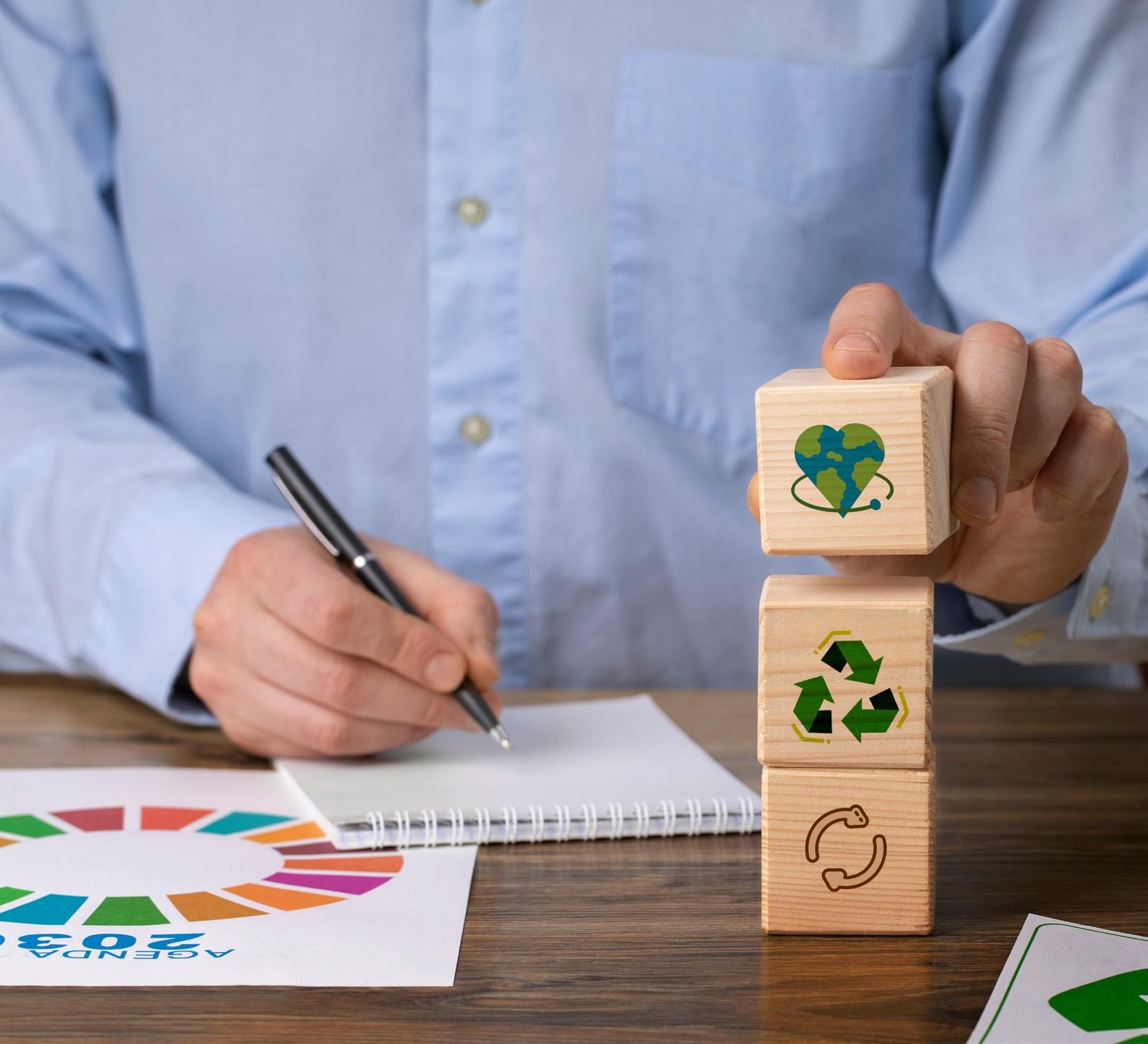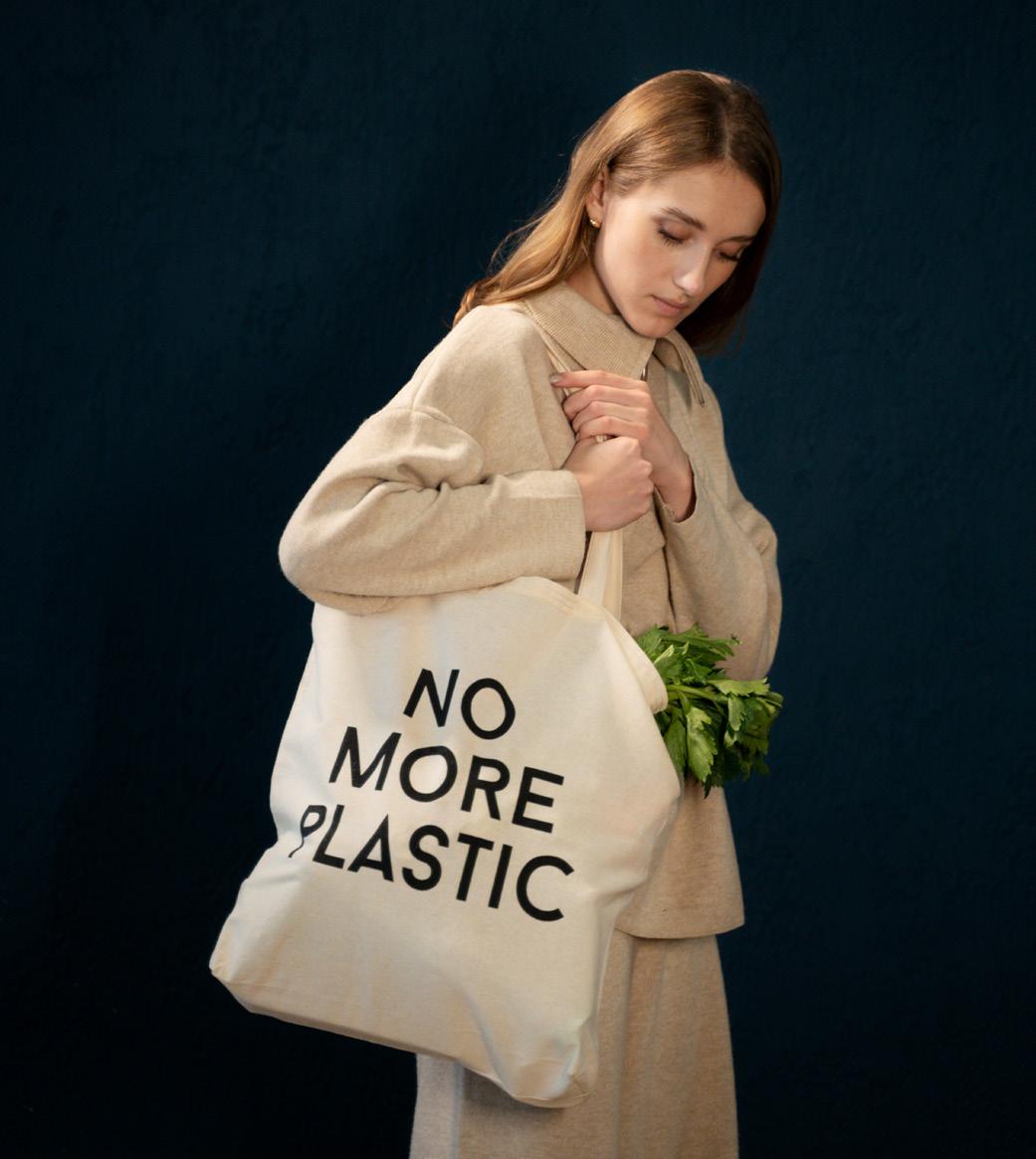
5 minute read
MEETING CONSUMER DEMANDS FOR A GREENER FUTURE
KAMEL SHABAN CHIEF EXECUTIVE OFFICER SOLO
Kamel Shaban is the CEO of SOLO, one of the fastestgrowing off-price retail brands in the UAE. He brings a wealth of experience in retail and a deep commitment to customer satisfaction. He leads the brand with integrity, professionalism, and a passion for his work.
Advertisement
“Be sustainable!” How often do you hear these two words in your lives? In school, at our workplace, while shopping and even while travelling. But what does sustainability mean? A simple explanation is “Sustainability is about reducing our ecological footprint on the planet.
With climate change consumers are increasingly looking to make more eco-friendly choices in their daily lives. This shift in consumer attitudes has put pressure on businesses to take action on sustainability, and the retail industry is no exception.

Sustainability in retail encompasses a wide range of initiatives, from reducing waste and carbon emissions to sourcing products and materials in a more ethical and sustainable way. In this article, we’ll explore some of the ways that retailers are responding to the sustainability challenge and what impact these efforts are having.
Reducing Waste and Carbon Footprint
One of the key areas of focus for retailers looking to become more sustainable is reducing waste and their carbon footprint. This can involve initiatives such as:
Implementing Recycling and Waste Reduction Programs: Retailers can work to reduce the amount of waste they produce by implementing recycling programs, composting food waste, reducing the use of single-use plastics and using reusable bags and packaging materials, and donating unsold inventory to charitable organizations.
Energy-Efficient Store Design: Retailers can also reduce their carbon footprint by designing stores that use energy-efficient lighting and using natural light whenever possible.
Sourcing Sustainable Products and Materials
In addition to reducing waste and carbon emissions, retailers are also taking steps to source products and materials in a more sustainable way. This can involve initiatives such as:
Using Sustainable Materials
Retailers can work to source materials that have a lower environmental impact, such as bamboo, organic cotton, or recycled plastics. Some retailers are also experimenting with alternative materials such as mushroom-based leather and seaweed-based packaging.
Ethical Sourcing
Retailers can also work to ensure that the products they sell are produced in an ethical way and they can also choose suppliers that use sustainable practices such as regenerative agriculture and fair labour standards.
Sustainable Packaging
Retailers can reduce the environmental impact of their packaging by using recycled materials, designing packaging that is easy to recycle, or eliminating unnecessary packaging altogether. That’s why retailers can offer products that are designed to be reused or recycled, such as refillable water bottles and reusable shopping bags. They can also offer products that are made from sustainable materials or have a low environmental impact.
The Benefits of Sustainability in Retail
While there is a cost to implementing sustainability initiatives, there are also significant benefits for retailers. These include:
Improved Brand Reputation: Retailers that prioritize sustainability can build a positive brand reputation, which can be a competitive advantage in a crowded market.
Cost Savings: Implementing sustainability initiatives can also lead to cost savings over time, through reduced waste, energy efficiency, and other measures.
Increased Customer Loyalty: Customers are increasingly drawn to retailers that share their values, and sustainability is becoming a key factor in purchasing decisions.

Innovation: Adopting sustainable practices can drive innovation and lead to the development of new products and services.
2023 the Year for More Sustainable Actions in the UAE
There is a lot of hope and optimism in the UAE as it looks to become more sustainable in the future. The country has set 2023 as the year when it will begin to take more action on its environmental issues, including the reduction of plastic bags and the use of renewable energy.
Plastic Bags Complete Ban - It’s been almost six months since major cities of the UAE imposed a tariff on single-use plastic bags, but it won’t be long until the emirate bans them altogether. The policy is aimed at reducing waste and encouraging sustainable consumer behaviour.

Single-use plastic bags are a huge source of pollution. It takes decades, if not hundreds of years, for them to decompose. This is why they are being replaced by multi-use alternatives such as jute bags, canvas bags, cotton bags, juco bags, etc.
UAE plans to take several measures, including organizing awareness campaigns and speaking to producers of plastic. Those involved in the ban are also looking to share their experiences with other countries.
The United Arab Emirates will become the host of the 28th session of the Conference of the Parties (COP28) to the UN Climate Change Conference (UNFCCC) in Dubai, UAE, in 2023. It is an important opportunity for the United Arab Emirates to make a positive contribution to the climate change negotiations.
In conclusion, as consumers and governments become more conscious of their impact in a world where sustainability is increasingly important, retailers that fail to act risk being left behind.










